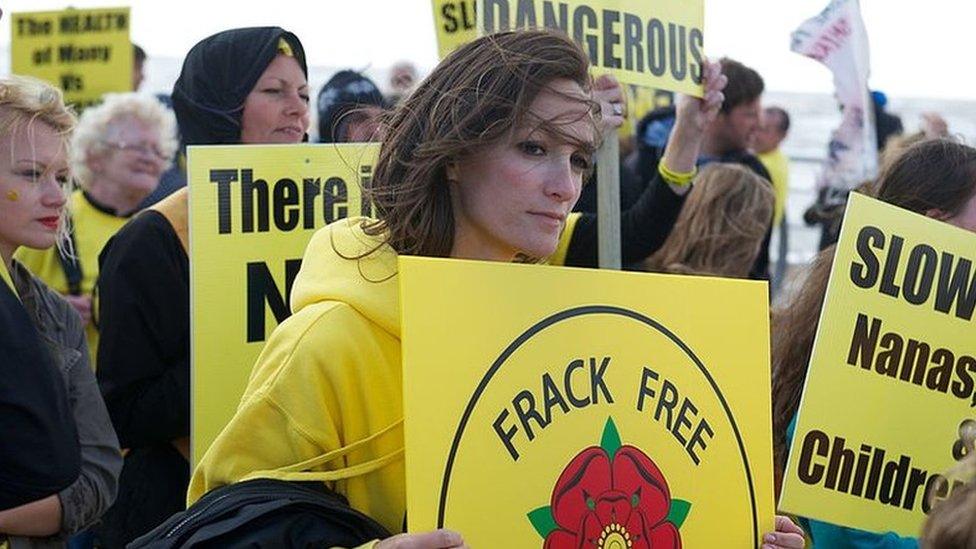Coal gas firm Cluff defends lobbying
- Published

Cluff Natural Resources wants to build the UK's first deep offshore UCG plant to exploit coal seams under the Forth
The company which wants to use coal seams beneath the Forth to produce gas has defended writing to ministers about possible threats to its plans.
Cluff Natural Resources was concerned a ban on onshore unconventional oil and gas exploration, or fracking, could be extended to its undersea plans.
Newly-released letters show Cluff warned ministers that plans to invest more than £250m were at risk.
Environmentalists accused Cluff of "holding Scotland to ransom".
WWF Scotland said plans to burn coal under the sea should be a non-starter.
The Scottish government announced a block on planned fracking operations in January.
They said ministers would carry out new work on the environmental and health implications of the controversial gas drilling technique.
The day after the moratorium was announced, Algy Cluff, the company's founder, said he wanted assurances from ministers that the ban on unconventional oil and gas would not apply to underground coal gasification (UCG).
He said the moratorium would have a "potentially devastating" impact on his company's "ability to operate and invest further in Scotland".
The UCG process attempts to reach reserves of coal which are inaccessible to mine, in this case under the waters of the Forth estuary.
It involves chemically converting the coal from a solid state into gas by pumping oxygen and steam through a small borehole into the coal seam.
Environmental campaigners have said UCG should be included in the fracking moratorium.
Mr Cluff's letter has been released following a freedom of information request from anti-fracking campaigners.
It has been published by The Ferret, an investigative journalism website, external, along with the reply sent by Alex Neil MSP, the Cabinet secretary responsible for planning.
In his response, Mr Neil gave Mr Cluff an assurance the moratorium was "specifically about the onshore exploration, appraisal, and production of coal bed methane and shale oil and gas."
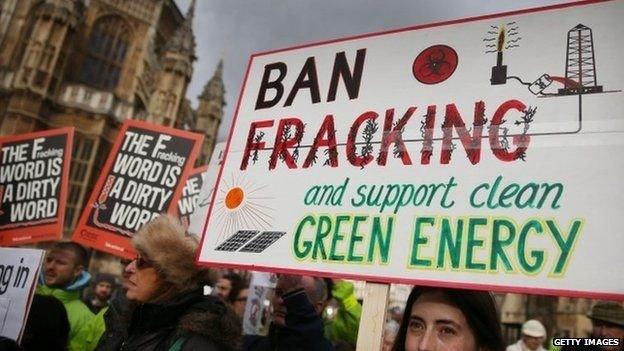
In January, the Scottish government announced a temporary block on planned fracking operations
He added: "The moratorium does not apply to the offshore underground gasification of coal."
Powers to licence onshore unconventional oil and gas developments are being devolved to the Scottish government. But UCG licences will continue to be issued by the Coal Authority.
A Scottish government spokeswoman said: "The development of new energy technologies, such as underground coal gasification, must be consistent with our environmental objectives and we will continue to take a careful, evidence-based approach to such developments."
'More problematic'
The potential environmental impact of UCG is disputed.
Prof Stuart Haszeldine of Edinburgh University is a member of the Scottish Government's independent expert scientific panel on unconventional oil and gas.
He said: "Underground coal gasification is environmentally a more sensible way to access the energy from the coal than opencast or deep mining.
"The best use of this gas is as feedstock for Grangemouth and it's a way of keeping high value jobs in central Scotland for the next 50 years.
"But finding a way to capture and store the CO2 produced will be essential."
A spokesman for Cluff said its Forth project was not fracking.
He said there would be "no scientific or public interest in including deep offshore UCG in any moratorium".
The Cluff spokesman said there were "no inherent risks associated with the process or the technologies employed in deep offshore UCG so long as site selection and process-management procedures are in place".
He added: "We have a duty to put our case to ministers in the same way anyone else would."
However, environmentalists insist the time has come for the Scottish government to rule out UCG.
They argue it already has the power to do so under the existing planning laws governing related developments onshore.
Lang Banks, director of WWF Scotland, said: "No company should ever be allowed to hold Scottish ministers or Scotland's environment to ransom like this.
"This latest revelation again highlights why plans to burn coal under the sea should be a non-starter, and why the Scottish government must extend its moratorium on unconventional gas extraction to include underground coal gasification.
"The science is clear, to protect our climate the vast majority of fossil fuel reserves must remain unburned. In a worst case scenario, proposals such as these could even extend our use of fossil fuels, locking us into a high-carbon world."
Big debate
Meanwhile, the SNP MP for Edinburgh East, Tommy Sheppard, has described UCG as "more problematic" than fracking because of the "threat of underground explosions and geological trauma".
Mr Sheppard also suggested the Scottish government's moratorium could be applied to UCG.
He told BBC Scotland: "If you are going to drill shafts onshore, before going offshore, you are going to need planning permission for that and, in my mind, that would most definitely be unconventional gas extraction and it would be covered by the moratorium.
"There's a big debate going on within the SNP, as there is within wider Scottish society, about whether or not these new technologies have a role to play, whether the benefits outweigh the risks, and that debate is going on in great detail within my local community and within my party.
"I have pretty much made up my mind on this and I am on one side of that debate and that's purely because of the evidence I have been shown over the last 18 months."
- Published22 February 2015

- Published14 April 2014

- Published13 December 2012
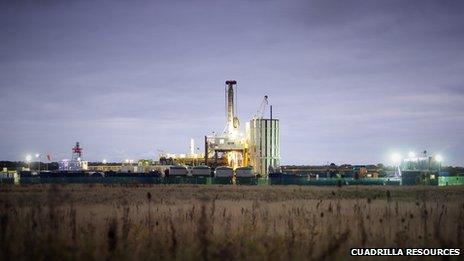
- Published16 July 2013
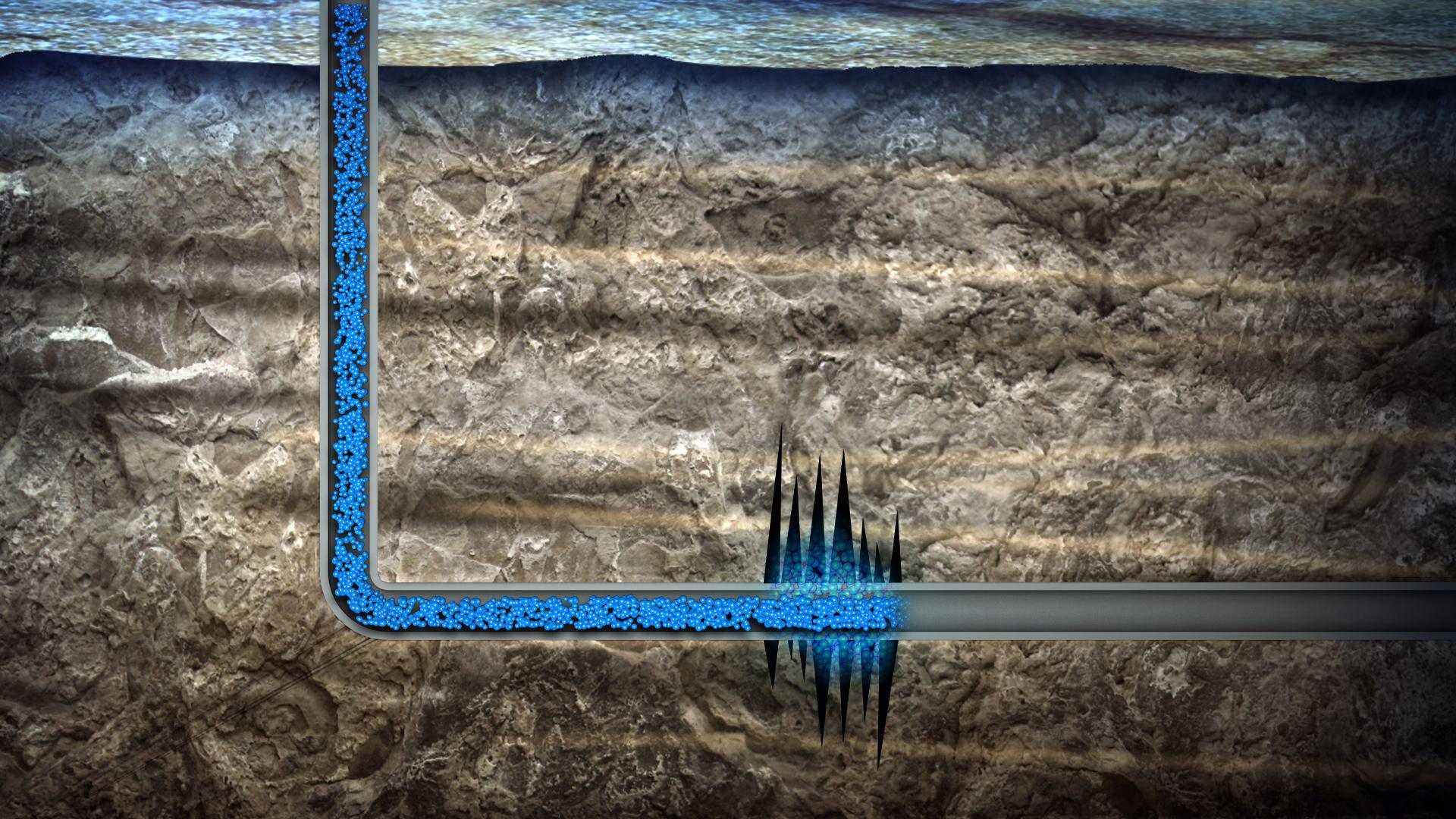
- Published28 January 2015
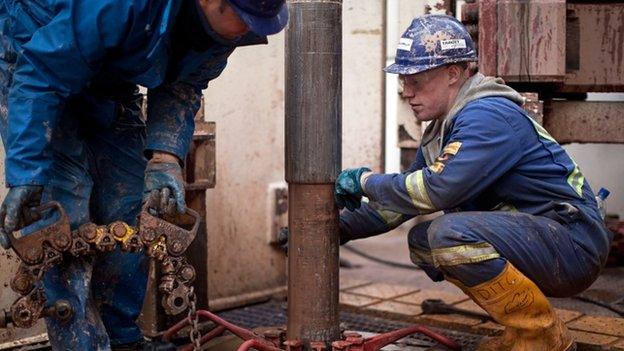
- Published10 November 2014

